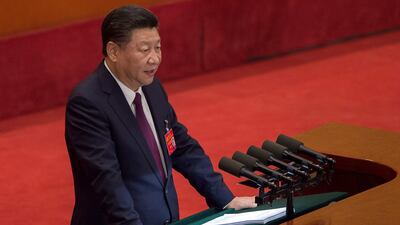China will likely dominate the coming decades, a panel at the Chatham House London Conference agreed today, achieving a global dominance through economic means, while the projection of American power through military means – and that of Europe through social democracy – will become less pertinent in what one panellist called the “Eurasian century”.
Joseph Chin Yong Liow, dean of international politics at the S. Rajaratnam School of International Studies, said that the major shift in China’s attitude in recent years has been a growing desire to go out into the world.
Where former Chinese leader Deng Xiaoping told his country “Let's hide our brilliance” in the 1980s, Xi Jinping’s current philosophy could be paraphrased as “Go West, young man”, urging China’s businesses and system to engage with the world. With almost $3tr in excess capital, twice the American reserves, it will be a difficult task to invest it all, Mr Liow told the plenary session.
However, it’s not all bad news for America, Mina Al-Oraibi, editor-in-chief of The National, noted that for the Middle East the Trump administration felt more honest and “transactional”. Despite misgivings among Westerners and Europeans about the US president, there was a lot more to trust in his tone than from previous presidents.
“President Obama started his administration with his Cairo speech in 2009, which was beautiful, but nothing came from that speech,” Ms Al-Oraibi said. Trump is more realistic and has meant that the US has stayed more vital for the Middle East in large part because of its ability to guarantee security.
She also remarked on the resurgence of the Iraqi state, noting that it had been written off over the last few years. “The talk was of the demise of the Iraqi state,” but instead the nation had managed to hold itself together despite the rise of Isil, and had found new pride in institutions such as the army. There is now growth in private investment in the region.
“Iraq for the longest time has just been waiting for aid. Now the conversation is changing to trade… The more we have trade, the more you will see Iraq strengthen.”
Meanwhile, all the panellists agreed that technology and how it would interact with society and changes within it, would be one of the most important single factors that would determine what the world would look like over the next decades.
“Our future prosperity entirely depends on our embrace on technology,” said Pawel Świeboda, deputy head of the European Political Strategy Centre, a European Commission body.
“China invests massively in AI, it leads in the production of electric vehicles, China has strength in solar panels… this is where we feel the competitive pressure [in Europe]. Which is good because we need to up our game in many ways.”

